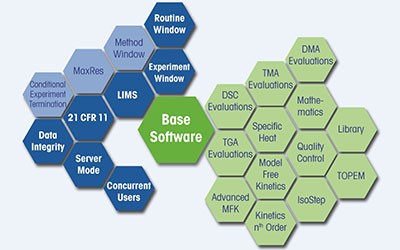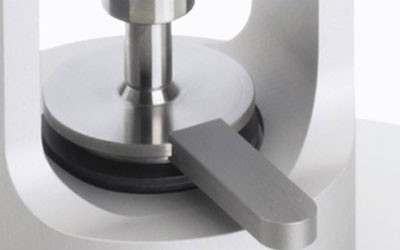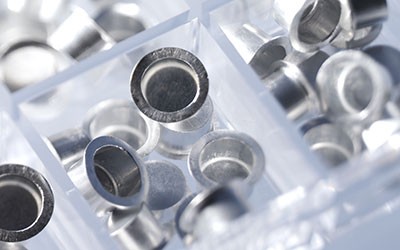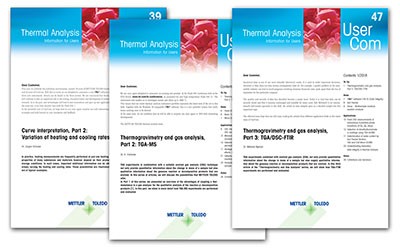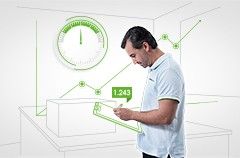
Kinetic Measurement Instruments
Reaction and Decomposition Kinetics with Thermal Analysis
Thermal analysis is a useful set of techniques for determining the kinetics of certain material processes. Simulate and predict the behavior of chemical reactions, material decomposition, processing conditions for safety analysis, or isothermal crystallization.
Advantages
Modular Design
Modularity is at the core of METTLER TOLEDO thermal analyzers enabling us to offer tailor-made solutions for almost all academic and industrial applications. Should requirements change after installation, the instrument can be upgraded as needed.
Reliable Automation
Our TGA and DSC systems support fully automated workflows – from sample loading to result analysis and report generation. Up to 34 samples can be processed by our robust, factory endurance-tested sample robot.
One Software for All Thermal Analysis Instruments
STARe is the most complete and comprehensive thermal analysis software, providing unrivalled flexibility, unlimited evaluation possibilities and the technical controls to support compliance.
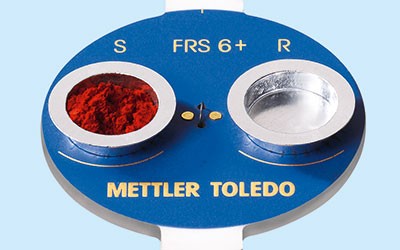
Innovative Sensor Technology
Put your trust in METTLER TOLEDO’s world-leading sensor technology: Whether you purchase a DSC, TGA, TMA or DMA instrument, we guarantee exceptional sensitivity and highly accurate measurement results.
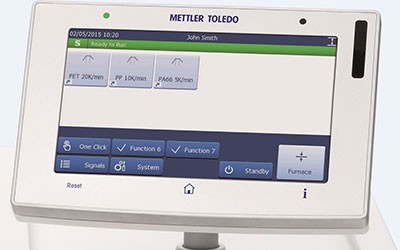
Simple Operation
STARe functionality is readily accessible from the software's intuitive ribbon interface. Standard features such as OneClick™ and multiple curve handling, as well as options like Quality Control and Reference Library, simplify daily lab work.
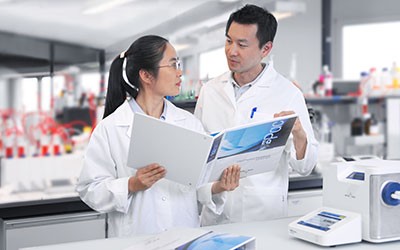
High-Level Competence & Support
Our global network of application specialists gives you access to the latest application know-how. Dedicated application specialists help to ensure that you obtain the most accurate thermal analysis results.
Explore Our Services - Tailored to Fit Your Equipment
According to the International Confederation for Thermal Analysis and Calorimetry (ICTAC), thermal analysis is group of techniques in which a physical property of a substance is measured as a function of temperature while the substance is subjected to a controlled temperature program.
Support & Repair

Training & Consulting

FAQs
How is differential scanning calorimetry (DSC) used to determine the kinetics of a chemical reaction?
The reaction kinetics can be analyzed using various mathematical models to determine the activation energy, reaction rate constant, and other kinetic parameters. This information can be used to optimize reaction conditions, predict reaction outcomes, and design processes.
What instrument should I use to determine decomposition kinetics?
Either a differential scanning calorimeter (DSC) or thermogravimetric analyzer (TGA) should be used. However, if decomposition takes place above 700 °C, then a TGA must be used.
How are thermal analysis kinetic results evaluated?
We have 3 different mathematical models for determining kinetics. One can use any of the following methods: nth order kinetics, model free kinetics (MFK), or advanced model free kinetics (AMFK).
How can I determine isothermal crystallization kinetics?
It is possible to test and predict the kinetics of isothermal crystallization with the Flash DSC.
